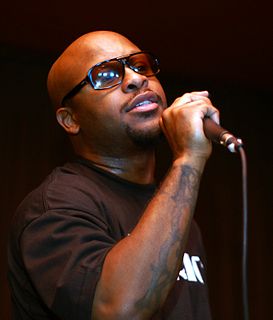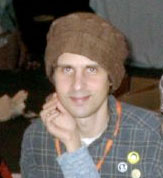A Quote by Jonathan Galassi
That's one thing about fiction: you can make the world be the way you think it should be.
Related Quotes
The thing about science-fiction fans and "Star Wars" fans is they're very independent-thinking people. They all think outside the box, but they all have very strong ideas about what should happen, and they think it should be their way. Which is fine, except I'm making the movies, so I should have it my way.
But I think writing should be a bit of a struggle. We're not writing things that are going to change the world in big ways. We're writing things that might make people think about people a little bit, but we're not that important. I think a lot of writers think we are incredibly important. I don't feel like that about my fiction. I feel like it's quite a selfish thing at heart. I want to tell a story. I want someone to listen to me. And I love that, but I don't think I deserve the moon on a stick because I do that.
The movement for women's liberation was about an emotional transformation, an explosion, a feeling all over the country that things must be different, and ideas about how they should be. I think fiction can capture that kind of thing better than other genres because in fiction you can explore the feelings of your characters - the before and the after.
For me, it's a way to find a fiction within a fiction. To find a way to uncover that blunder within the "lie," because when you look closer, every "lie" - and I say that with quotation marks - can be much more complicated. Because that is what fiction is: it's probably the least important thing in the world. It's rich, but it is put-on, it passes the time. It borrows from the world, but it does not invent it.
I got caught cheating a bunch of times, well now I'm not drinking but you think just because I say, "Oh I'm not cheating on you" that that's good enough? No! It's about action and I think it's the same way with God. It's about action, it's about the way you live your life and how you carry yourself and that's what God sees. I think people should take a page out of that book when they make their decisions and do things... and I think that the world would be a better place.
All fiction, if it's successful, is going to appeal to the emotions. Emotion is really what fiction is all about. That's not to say fiction can't be thoughtful, or present some interesting or provocative ideas to make us think. But if you want to present an intellectual argument, nonfiction is a better tool. You can drive a nail with a shoe but a hammer is a better tool for that. But fiction is about emotional resonance, about making us feel things on a primal and visceral level.
Punk rock was the first thing I found in my life that made me feel acceptable. The thing that got me into punk rock was the idea, "You're fine just the way you are." It sounds kind of dorky, but you don't have to make excuses for who you are or what you do. When you find something like punk rock, not only is it okay to feel that way - you should embrace your weirdness. The world is totally messed up, and punk rock was a way to see that and work with it without candy-coating it. It was saying, "Yeah, the world is this way, but you can still do something about it. Take energy from that."
A home life where it's so full of so many rigorous ideas about the way things should be, this word "should," I think is absolutely toxic to children. It hurts their personalities, it hurts their points of view in the world, it hurts their ability to be open and caring and curious. An element of allowance in a family, is, I think, really a positive thing.




































